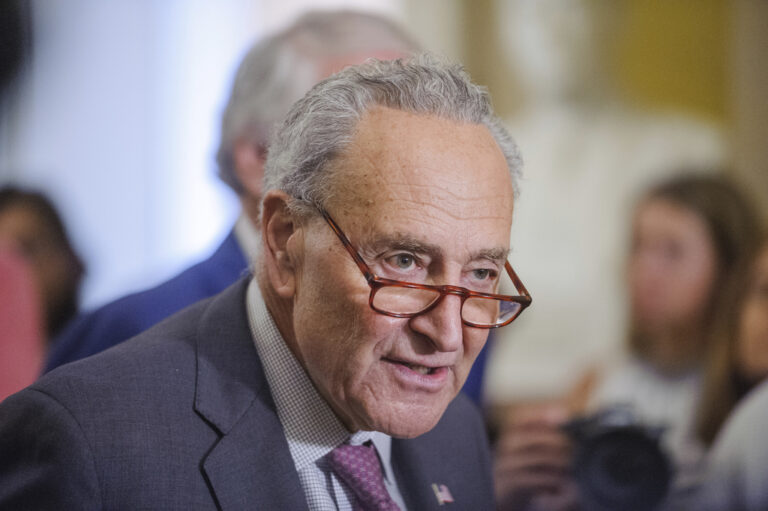 Republicans’ knack for congressional redistricting helps them control the U.S. House, but it may be working against them on immigration changes that national GOP leaders see as critical to the next presidential election.
Republicans’ knack for congressional redistricting helps them control the U.S. House, but it may be working against them on immigration changes that national GOP leaders see as critical to the next presidential election.
House Republicans generally represent far fewer Hispanics than Democrats do. And that leaves many GOP members representing white conservatives, many of whom oppose a path to citizenship for immigrants living here illegally.
The combination poses a high hurdle for passage of a comprehensive immigration overhaul in the Republican-controlled House. The Senate has passed such a measure, which includes an eventual pathway to citizenship, accompanied by greater border security.
A GOP-sanctioned study of Mitt Romney’s November defeat concluded that the party must embrace immigration reform to stem its huge losses among Hispanic voters, a fast-growing group. But dozens of House Republicans have a far greater fear: inviting GOP primary challengers from the right by failing to appease their most conservative constituents.
“House members would clearly be taking a risk in supporting any kind of immigration reform that includes a path to citizenship,” said Emory University political scientist Alan Abramowitz. “There’s clearly a tension here between what would be in the interest of the Republican Party” — particularly in presidential races — “and what would be in the interest of individual Republicans, especially in the House.”
Both Republicans and Democrats in many states have refined the art of congressional gerrymandering, in which they draw House districts to be as strongly conservative or liberal as possible. Adding to the partisan divide are decisions by millions of Americans to live among politically like-minded people. And partisan-tinged radio and TV programs shower lawmakers and constituents with ideological reinforcement.
While Democrats gerrymander districts too, GOP control of many state governments after the 2010 Census let Republicans draw an unusual number of House districts to their liking. Now, from a presidential election viewpoint, Republicans may be choking on their success.
Rep. Kevin McCarthy of California, the House’s third-ranking Republican leader, notes the partisan disparity in Hispanic representation. The average Hispanic proportion of a Democrat’s House district is 23 percent, he tells colleagues, while it’s 11 percent for Republicans. Of the House’s 234 Republicans, 106 have districts in which Hispanics make up less than 6 percent of all residents.
With conservative and liberal activists dominating Republican and Democratic primaries, respectively, lawmakers are being chosen by “very unrepresentative voters,” said Mickey Edwards, a former Republican congressman from Oklahoma. If you’re a lawmaker from a solidly partisan district, Edwards said, “you don’t worry about the general election. You make sure you win the primary.”
For many Republicans, he said, that means constantly veering right. On issues such as immigration, Edwards said, some Americans say, “‘What’s wrong with these people, they’re irrational.'” In fact, he said, “the opposite is true. They are very rational.”
At a meeting with constituents last week, GOP Rep. Justin Amash — whose Michigan district is about 7 percent Hispanic — heard sharp criticisms of the Senate immigration bill.
“Compromise is the crucifixion of conscience,” said Terri Rogers, 66, of Cedar Springs, Mich.
She dismissed Amash’s argument that the millions of immigrants living here illegally can’t be rounded up and deported. “You break the law, you go to jail — or at least go home,” Rogers said. She suggested the U.S. military handle the task.
Even in districts with more Hispanics than Amash has, they “generally aren’t the voters that Republicans are counting on” to win the all-important party primaries, Abramowitz said. That’s because most Hispanics lean Democratic, as President Barack Obama proved by winning 71 percent of their vote last fall.
John Feehery, a GOP strategist and former House aide, said he once thought anti-immigrant sentiment would run lower in areas with relatively few Hispanics. Instead, he said, it seems “the fewer Hispanics you have in your district, the more you’re against immigration reform.”
House members will vote the interests of their districts and their primary-election needs, Feehery said. “Members are worried about a tea party challenge,” he said. “They’re not going to worry about presidential politics.”
Rep. Tom Cole of Oklahoma is close to House Republican leaders, and he agrees that immigration reform would help the party’s presidential prospects. However, he said, “people feel so strongly about this issue that it’s extremely difficult to fashion a bill that will get a majority of the Republicans and a Democratic Senate and a Democratic president.”
When House Republicans see their re-election efforts conflicting with the party’s presidential goals, Cole said, “their own race almost certainly is going to come first, every time.”
(AP)











4 Responses
They are ILLEGAL and BROKE our laws to get here or stay here. THROW THEM OUT or make them get to the back of the line & while they wait, FOLLOW ALL OUR LAWS!
B”h thank G-d for that we have enough of our own law breakers out there we don’t need to permanently import more from mexico. Nor do we need to promote the impression that it pays to sneak across the border and have them leech onto our tax money in the form of social services welfare food stamps etc. & in addition compete for the same jobs and drive up unemployment levels. It just doesn’t make any logical sense.
“THROW THEM OUT or make them get to the back of the line & while they wait, FOLLOW ALL OUR LAWS!”
And just what taxes do you propose increasing to pay for this massive roundup, the size of which would dwarf that of the Shoah?
This is how the Republicans lost the total congressional vote by 1.2% but retained a strong majority, so now they can scream, “Oh, we have a mandate to harass Obama”.